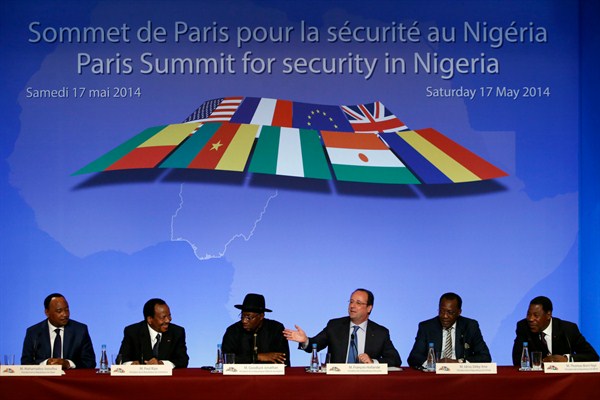“It’s the same fight, the same stakes,” French President Francois Hollande said of the battle against extremism in France and Africa while meeting with Malian troops in the northern city of Gao last week. “The terrorists who attack our land, who commit acts on our soil, are allied with those who are in the Levant, in Iraq and Syria, but here as well, in the Sahel.” Just days later, a suicide attack killed dozens at an army base there.
Hollande was in Mali for the final Africa-France Summit of his presidency, which took place in the capital, Bamako, amid tight security. Some observers initially questioned the choice of the city, given persistent insecurity in Mali, voicing a preference for Abidjan, the commercial capital of Cote d’Ivoire. But for Hollande, who launched France’s Operation Serval intervention in Mali in January 2013 less than a year after he took office, the country has significant symbolic relevance for his legacy in Africa.
Security defined France’s Africa policy under Hollande, with French troops now deployed from Senegal and Mali to Chad and Djibouti. Since launching Operation Serval in 2013—which expanded to become a regional effort, Operation Barkhane, in 2014—France has trained more than 20,000 African soldiers annually. It hopes to increase that to 25,000 a year by 2020 as part of a larger effort to reduce its direct military interventions on the continent moving forward. But for all of Hollande’s focus on security, critics argue, the region remains unstable; following his visit to Bamako, articles lambasting his overly militarized strategy proliferated in the French press.

